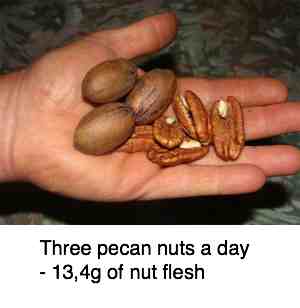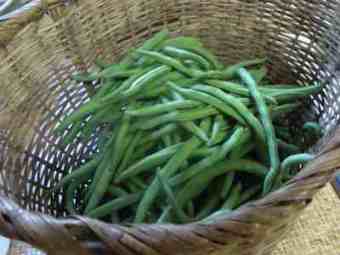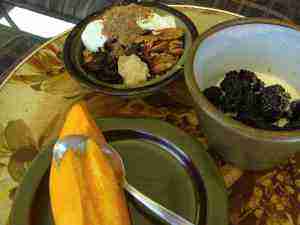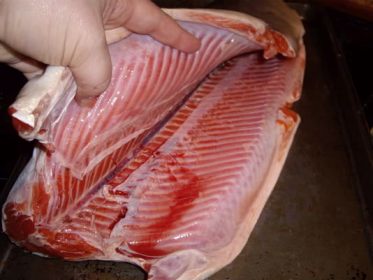- Home
- Weight loss
- Heart Stroke Diabetes
Heart stroke diabetes
Heart, stroke and diabetes explains how we can reduce the risk of death and serious disablement by 50 percent by dietary changes alone, many of which would not be particularly difficult. Could you add a handful of unsalted nuts and seeds as a snack every day and reduce your chance of a CVA, MI or DM by 8.5%?
It is really a philosophy of life; not thinking that it is the doctor, the chiropractor and the dentist's responsibility to care for us. We are the ones who will suffer the pain and disability, so it is up to us to look after our own bodies and minds.

That is type-2 diabetes, by the way; adult onset due to poor lifestyle. No doctor can alter the way we live; he or she can advise but only we can ring in the changes for ourselves.
Every single day, chiropractors and dentists are faced with patients with these issues. They are our responsibility too. It is not directly related to the disability associated with heart disease or a stroke but let us mention two other factors in passing.
 Green beans are a legume.
Green beans are a legume.- With the epidemic of lower back pain in the Western world, only we can prevent this misery by doing two minutes of exercises in bed every morning before arising; it will make a huge difference. They will save us tens of thousands of dollars in bills from the chiropractor and surgeon.
- Only we can brush and floss our teeth twice daily; the alternative is constant pain and visits to the dentist. It is our own responsibility; and we are the ones to suffer if we refuse to make the time.
Time
It is all about time. Either we make and take ten minutes here and there, or we will spend many hours consulting doctors of every ilk. It is great for my business if you refuse to do the prescribed back exercises; and the dentists love it if you will not floss. And of course Medicine makes a meal of it; a lavish skiing trip for the cardiologist if we refuse to consider heart, stroke and diabetes.
But as has been said so often, you can take a horse to water but you cannot make it drink. Or as the Dutch neatly proclaim, those who will not hear must feel; and so it is.
Heart stroke diabetes
This essay on heart, stroke and diabetes is about taking responsibility for our own well-being; otherwise where are you planning to live? They are known in medical jargon as the cardiometabolic diseases.
In a profound article entitled the association between dietary factors and mortality from heart disease, stroke and type-2 diabetes in the United States[3] researchers have listed 10 matters for us to consider if we want to enjoy long and vibrant lives; free of pain, disability and premature death.
I have taken them not in order of importance, but from the easiest to the most difficult to bring about; are you willing to ring in the changes?
Their research reveals that, in the USA dietary issues alone cause 320,000 unnecessary deaths every year from the heart disease, stroke and diabetes epidemics. And that does not include those who do not die but are unable to walk, speak or have gone blind; or have to inject themselves four times a day with insulin.
Figures will be comparable throughout most of the world enjoying the so-called industrial diet; typical food from the grocery store.
That is nearly 1,000 people per day in the USA alone who die completely unnecessarily just from these three cardiometabolic diseases.
Here are the ten dietary issues they researched.
1. Processed meat
Processed meat like polony, salami and biltong are the cause of 8.2% of heart, stroke and diabetes deaths in the USA; jerky, bacon and ham are fingered too.
For me at least, this is the easiest especially as processed meat is also very high on the list of the causes of malignancies. But it may not necessarily be simple for you; perhaps ham is daily on the menu. It is for many folk in Holland.
Keep bacon for high and holy days; and certainly no more than once a week.
2. Whole grains

They list a diet low in whole grains as the cause of 5.9% of heart, stroke and diabetic deaths.
Our bread has become so unwholesome, processed and totally lacking in flavour, that to enjoy it we have to add salami or ham, or something sweet. It' the perfect double wammy; a high GI loaf plus the processed meat.
8.2 + 5.9 = 14.1
The secret to getting off processed meat is to return to what is now being called real bread, or the 100 percent wholemeal loaf; it tastes so good you have no need to cover every slice with something that will enhance that impending stroke.
Or go the next step, also very simple, to making your own artisan bread.
I find it tastes so good that there is
absolutely no need for honey, jam or processed meat. It takes an extra minute to feed the culture to make sourdough bread.
Never purchase white bread or rolls but do not turn up your nose when served with refined food when invited out to dinner; that's the beginning of orthorexia, a serious psychological disease. Perhaps ask for a small helping only.
But always in the back of your mind remember that a deficiency of whole grains is a serious cause of death from heart, stroke and type-2 diabetes. This is a huge concern for those who are gluten intolerant, but there is a solution; make your own sourdough bread.

Corn on the cob is a wonderful whole grain and eaten freshly-picked is not fattening; visit the farmers' markets.
3. Sweetened colas
Whilst this research refers only to sugary colas, it is now well established that those artificially-sweetened with saccharine and aspartame contribute to metabolic syndrome; and fruit juices are little better.
These drinks directly cause 7.4% of deaths from heart disease, stroke and diabetes. There is simply no place for them in the diet of the person who does not want pain and disability in their life; but if you are hooked, kicking the habit will be difficult.
At the beginning of each day make up a large two litre bottle of very weak unsweetened tea; add a touch of freshly-squeezed lemon or lime juice.
Keep a bottle of spring water on your desk.
Decide you will never buy these colas for yourself or even more importantly your family; you do not want a fat, diabetic kid whom you will have to inject with insulin every day. It is a huge and rapidly increasing problem. When you go out, perhaps indulge if you must.
But seriously consider the influence that artificial sweetener side effects will also have on your well-being before adding Sweet and Low for example to your beverages. Now that is not difficult if you grind and filter your own coffee; instant tastes awful without some form of flavouring.
Diabetes is being called the Black Plague of the Twentieth Century. Nearly 200,000 people are dying annually in Italy, for example, from conditions related to chronically raised blood glucose.
The original, now known as bubonic plague, carried by the flea on a rat, literally, killed an estimated 100 million people in the 14th century. Today there are still isolated outbreaks where garbage collection is ignored by the authorities. Diabetes is killing a similar number.
4. Nuts and seeds
Menu planning that is low in unsalted nuts and seeds is the second highest cause of heart, stroke and diabetes deaths; coming in at 8.5%.
Nearly
one in ten people die unnecessarily simply because they would not crack
a pecan, open a packet of walnuts or crunch a handful of seeds; sesame,
pumpkin and sunflower are our favourites.
Actually grinding your own flaxseed should be a topper because it simultaneously enhances the effect of another item on the list of ten; an omega-3 fat known as ALA.
In terms of ease, adding unsalted nuts and seeds daily to your diet is surely one of the easiest, and the second-most important.
Try not to become a statistic simply because you would not take the time to crack a walnut or pecan, or chew a handful of sunflower seeds every day.
5. Vegetables
A diet low in vegetables causes an unnecessary 7.6% of deaths from cardiometabolic disease. Add to that the high incidence of birth defects from a deficiency of folate, and tired all the time syndrome from an iron shortage and we can see the importance of your greens like spinach and kale, purples such as beets and yellows in a butternut.
Add to that constipation and inflammation in the joints, muscles and blood vessels and you will understand why I press my patients to grow and eat kale every day of their lives. We enjoy it mainly in Eggs Hilton that we have for breakfast most days.
In other research it has been shown that those enjoying at least eight coloured foods every day have a 35 percent lower all cause of death; that is massive.
Preparing these vegetables is not onerous at night; spinach for example takes less than five minutes to wash and steam. I recommend a pressure-cooker for the beets; made once a week they will keep in the fridge, or pickle them. They are incidentally what I called God's gift to the colon.
Read more on that subject at beetroot constipation if you are one of the afflicted; I was until I discovered them.
Are you going to be one of the 700 Americans who will die tomorrow from heart, stroke or diabetes because you would not eat your greens today?
6. Fruit

Food low in fruits contributed to 7.5% of the 320,000 unnecessary deaths from cardiometabolic deaths every year in the USA. Add to that the blind and the lame from diabetes and stroke and you realise just how important it is to enjoy a handful of grapes, a dried fig, an apple or an avocado every day.
That surely is not so difficult; they are amongst my favourites. This morning I was one of the privileged few to enjoy half a dozen freshly scooped passion fruit with a teaspoon of raw honey and yoghurt; it certainly was not punishing to stop myself dying or being disabled from heart, stroke or diabetes.
Fruit contributes so easily to the eight coloured foods per day; you enjoy whatever is in season in your neck of the woods. Watermelon, plums or blueberries would all be just as good.
It is been said so many times before; an apple a day, but we are really so hard of hearing. Or is it just plain stubborn? Those who will not hear, must feel. Yes, those Dutch got it right.
St Francis of Assisi described his body as Brother Ass; lovable but very lazy and stubborn. Use the Site Search function above to find more about that hearty chestnut.
7. Salt
Although foods high in salt top the list at a massive 9.5% of unnecessary deaths, I have put it lower down because getting your sodium down means getting off convenience foods like pizza and canned soups, pretzels and highly salted french fries and potato crisps; it is not going to be easy.
Adding a strawberry or a walnut to your daily fare is dead easy, but giving some of these up is not going to be simple. Do it gradually, keeping in mind that too much salt tops the list.
You must have salt in your diet but, if you eat out a lot, the chances are that you are way over the limit. That means a high risk of heart, stroke and diabetes. Think about it before you buy a packet of crisps.
Do not allow some of the salt high blood pressure to allay your fears; it is still a problem and tops our list.
8. Fatty fish

If you love fatty fish like salmon and herring, then getting your omega-3 will not be difficult but the truth is that most of us are woefully short.
A lack of cold-water fish contributes a massive 7.8% of the nearly one thousand Americans who die unnecessarily from cardiometabolic disease every day.
Many people do not like fish, so then they should eat walnuts and freshly ground flax seeds regularly for their omega-3; or become a statistic.
Fatty fish twice a week is the recommendation. I love salmon because it is so quick to grill. Add a squeeze of fresh lemon and a green salad; dinner is done.
Rollmops is a pickled, bottled herring that is one of my favourites when I cannot get fresh fish.
9. Polyunsaturated fats
Too little polyunsaturated fat is perhaps one of the more controversial findings as this research does not distinguish between the omega oils; it comes in low down at 2.3% of unnecessary deaths from cardiometabolic disease. Certainly the emphasis is on getting away from saturated fat.
However the role of monounsaturated fat as in olive oil and avocados is not mentioned; nor canola which is very high in the poly omega-3 alpha linolenic acid (ALA) is not commented on either.
Nor is whether the fats were cold-pressed or solvent extracted.
Nor is the "butter is back" controversy discussed.
Nor is the research that we should be getting around 2% of our energy from polyunsaturated fats; but with ultra-processing of food today people are getting 10pc. That is highly inflammatory.
Nor are hydrogenated foods mentioned.
The jury is not out on this one and we expect more contradictory and controversial statements on the role of fats in disease.
But no one gainsays the value of monounsaturated extra-virgin olive oil, or that from wild salmon; they are king and queen of the fats, head and
shoulders above the rest. Avocados are not far behind.
10. Unprocessed red meat
Interestingly unprocessed red meat was last on the list, contributing luckily for carnivores a measly 0.4% of the risk of dying unnecessarily from heart, stroke and diabetes. Nevertheless it is there, and because of its role in neoplasms should not be ignored.
After post-menopausal hormones, animal protein, much of it processed as in ham and bacon is considered one of the primary causes of one in eight women suffering from a malignancy of the breast, for example. Another is the extraction of lignans from grains by millers.
Breast tumours and prevention should be on every family's agenda; we do it by growing peas and other legumes, and enjoying only whole-grain bread.
Difficult though it may be the cancer association recommends a legume and a wholegrain at every meal.
A vegetable garden trellis for pole beans, and our quick hummus are all-important for us in reducing our reliance on red meat for protein.
Time and thought
Some of this does take time in our busy worlds but more important it is about thought; thinking about what we consume and keeping it a priority.
If you find it slipping from the consciousness, start drawing up a list of friends and family who are on the heart, stroke and diabetes list. Ask anyone of them just how much time is taken up by their disease; and what they would have done differently if only they had known.
Now you do know; it is about right choices.
- Home
- Weight loss
- Heart Stroke Diabetes
When browsing these links use right click and "Open Link in New Tab", or you may get a bad gateway signal.
Did you find this page useful? Then perhaps forward it to a suffering friend. Better still, Tweet or Face Book it.

